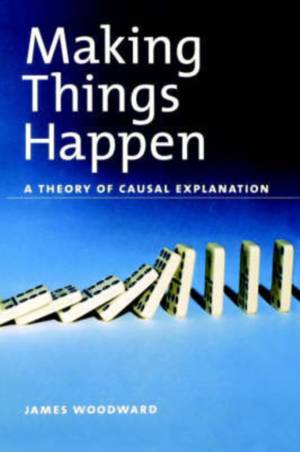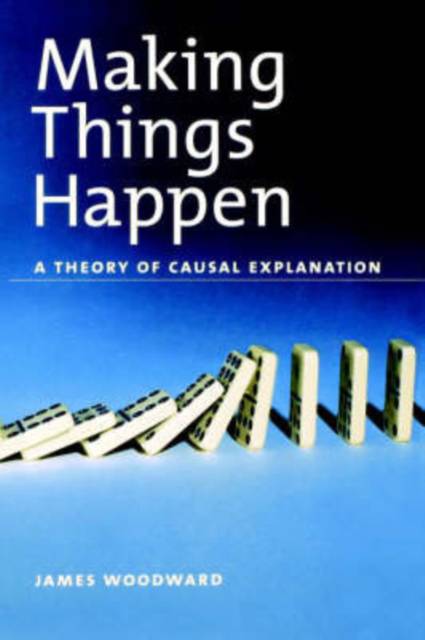
- Retrait gratuit dans votre magasin Club
- 7.000.000 titres dans notre catalogue
- Payer en toute sécurité
- Toujours un magasin près de chez vous
- Retrait gratuit dans votre magasin Club
- 7.000.0000 titres dans notre catalogue
- Payer en toute sécurité
- Toujours un magasin près de chez vous
Description
In Making Things Happen, James Woodward develops a new and ambitious comprehensive theory of causation and explanation that draws on literature from a variety of disciplines and which applies to a wide variety of claims in science and everyday life. His theory is a manipulationist account, proposing that causal and explanatory relationships are relationships that are potentially exploitable for purposes of manipulation and control. This account has its roots in the commonsense idea that causes are means for bringing about effects; but it also draws on a long tradition of work in experimental design, econometrics, and statistics. Woodward shows how these ideas may be generalized to other areas of science from the social scientific and biomedical contexts for which they were originally designed. He also provides philosophical foundations for the manipulationist approach, drawing out its implications, comparing it with alternative approaches, and defending it from common criticisms. In doing so, he shows how the manipulationist account both illuminates important features of successful causal explanation in the natural and social sciences, and avoids the counterexamples and difficulties that infect alternative approaches, from the deductive-nomological model onwards. Making Things Happen will interest philosophers working in the philosophy of science, the philosophy of social science, and metaphysics, and as well as anyone interested in causation, explanation, and scientific methodology.
Spécifications
Parties prenantes
- Auteur(s) :
- Editeur:
Contenu
- Nombre de pages :
- 432
- Langue:
- Anglais
- Collection :
Caractéristiques
- EAN:
- 9780195189537
- Date de parution :
- 27-10-05
- Format:
- Livre broché
- Format numérique:
- Trade paperback (VS)
- Dimensions :
- 152 mm x 229 mm
- Poids :
- 612 g

Les avis
Nous publions uniquement les avis qui respectent les conditions requises. Consultez nos conditions pour les avis.






